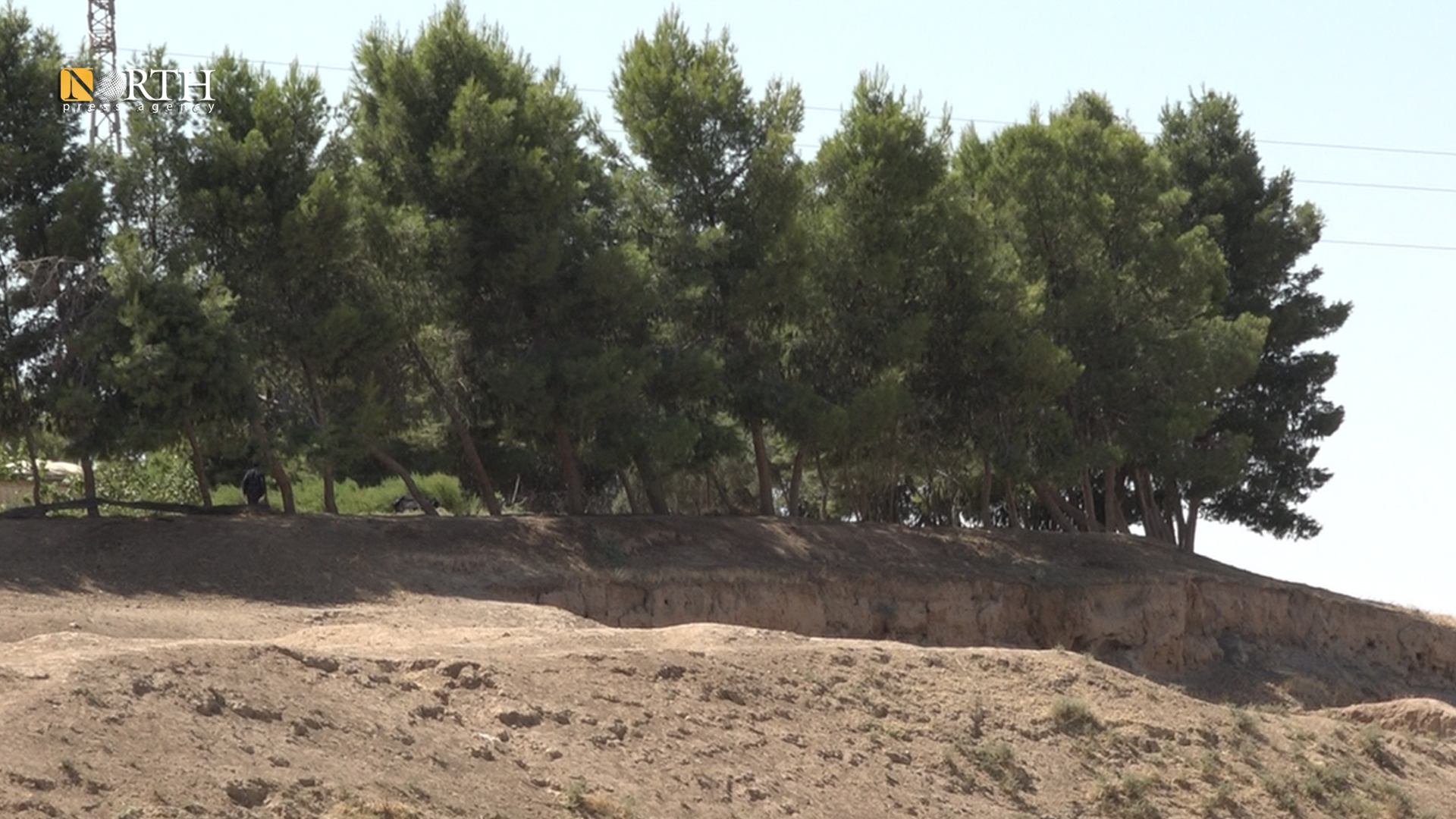SERE KANIYE, Syria (North Press) – An official in the Autonomous Administration confirmed that many ancient sites in Sere Kaniye, an area near the Syrian-Turkish border occupied by Turkey, are vulnerable to illicit removal of artifacts and damage, while the Department of Antiquities of Hasakah is unable to maintain them due to the state of chaos there.
Adnan Bari, manager of the Department of Antiquities of the Autonomous Administration in Hasakah, told North Press that those sites are threatened with theft and looting after Turkey and its affiliated armed opposition groups took control of Sere Kaniye (Ras al-Ain) and Tel Abyad (Gre-Spi) in 2019.
Adnan added that recently Turkey has sent a number of heavy vehicles for excavating archaeological sites in the area, “which has political depth, because those sites are a testament to the civilization and heritage of ancient peoples of this region.”
According to the Syrian Ministry of Tourism and Antiquities, there are about 1,043 archaeological sites in the Jazira Region, many of which are listed in the United Nations Educational, Scientific and Cultural Organization (UNESCO).
According to UNESCO, statues and sculptures found at these sites date back to a vast array historical periods.
There are more than 60 archaeological sites in Sere Kaniye (Ras al-Ain) and Tel Abyad (Gre-Spi), the most important of which is Tel Halaf, on the Khabur River three kilometers west of Sere Kaniye, according to the Department of Antiquities.
Most of the looting of archaeological sites in Turkish-held areas were not recorded because they are on the frontlines between Syrian government forces and Turkish-backed opposition groups, and “we face difficulties in reaching these sites and securing them,” said Bari.
He confirmed that a number of archaeological sites in opposition-controlled areas were “removed in primitive ways, and ruins were sold to merchants and transported outside the country.”
The Department of Antiquities in Hasakah designated individuals to take care of these sites. Saleh Selo, a guard responsible for archaeological sites in the northern countryside of Tel Tamr, inspects Tel Sokar Ahmir site, which dates back to 8000 BCE, according to a Japanese expedition that excavated it.
Selo told North Press that the site is in danger, not secured, and hard to reach, because “Turkish forces repeatedly shell the area.”
Moreover, the same cases of trafficking of antiquities, digging archaeological hills and selling of antiquities occured in Afrin, where there are many archaeological sites, after Turkish-backed armed opposition groups took control of it in 2018.
Syria has witnessed illegal excavation and trade of cultural objects from Syrian archaeological sites since the outbreak of civil war and conflict in 2011. Turkey and its-backed armed opposition groups engaged in a large share of this lucrative trade, especially during its latest operations in Afrin, Sere Kaniye and Tel Abyad.

